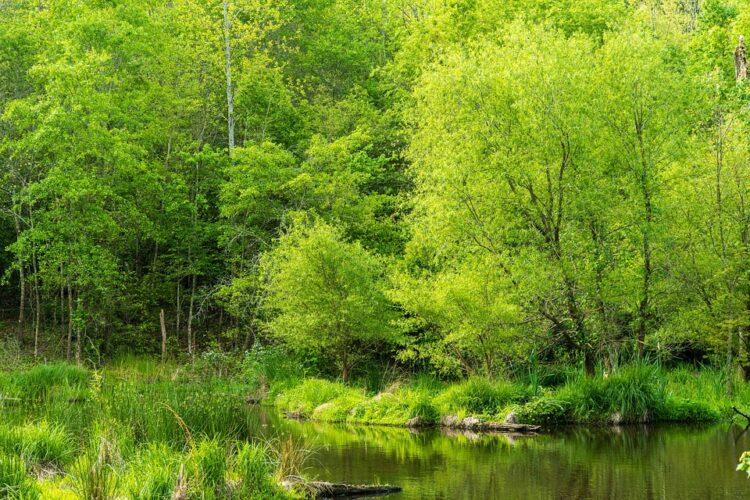Preserving Paradise: The Urgent Call for Forest Conservation
In a world where deforestation is rampant and climate change is a pressing issue, the preservation of our forests has never been more crucial. Forests play a vital role in the health of our planet, providing essential ecosystem services, such as carbon sequestration, biodiversity conservation, and water regulation. However, these valuable resources are under threat from human activities such as logging, agriculture, and urbanization.
Why Forest Conservation Matters
Forests are often referred to as the “lungs of the earth” because they absorb carbon dioxide and release oxygen through photosynthesis. This process helps mitigate climate change by reducing the amount of greenhouse gases in the atmosphere. In fact, forests store more carbon than is currently in the atmosphere, making them a critical tool in the fight against global warming.
Furthermore, forests are home to an estimated 80% of the world’s terrestrial biodiversity, making them vital for the preservation of plant and animal species. Deforestation and habitat destruction not only threaten the survival of these species but also disrupt the delicate balance of ecosystems, leading to a cascade of negative impacts on human health and well-being.
Additionally, forests play a crucial role in regulating the water cycle. They absorb and store water, reducing the risk of floods and droughts, as well as providing clean drinking water to millions of people around the world. By preserving forests, we can ensure the availability of this essential resource for future generations.
The Threat of Deforestation
Despite the numerous benefits of forests, they continue to be under threat from human activities. Deforestation rates remain alarmingly high, with an estimated 18 million acres of forest lost each year. The main drivers of deforestation include logging for timber and paper production, clearing land for agriculture, and urban expansion.
Deforestation not only contributes to climate change by releasing carbon stored in trees into the atmosphere but also leads to the loss of biodiversity and ecosystem services. It also has devastating effects on indigenous communities who depend on forests for their livelihoods and cultural heritage.
The Urgent Call for Action
Given the critical role that forests play in maintaining a healthy planet, urgent action is needed to conserve and restore these valuable resources. Governments, businesses, and individuals all have a role to play in protecting forests and promoting sustainable land use practices.
One of the most effective ways to conserve forests is through the establishment of protected areas and national parks. These areas help preserve biodiversity, protect indigenous cultures, and promote sustainable tourism. By designating and enforcing protected areas, we can ensure that forests are preserved for future generations to enjoy.
In addition to protected areas, sustainable forest management practices can help balance the needs of people and the environment. These practices involve harvesting timber and other forest products in a way that maintains the integrity of the forest ecosystem and ensures its long-term health. By promoting sustainable forest management, we can meet the demand for wood products while preserving the ecological functions of forests.
The Role of Technology in Forest Conservation
Advances in technology have made it easier than ever to monitor and protect forests. Remote sensing technologies, such as satellites and drones, can provide real-time data on deforestation rates, land use changes, and forest health. This information allows policymakers and conservationists to make informed decisions about how best to protect forests and combat illegal logging.
Moreover, digital platforms and mobile apps are empowering citizens to get involved in forest conservation efforts. By using these tools, individuals can report illegal logging activities, participate in reforestation projects, and support sustainable forest management practices. Technology has the potential to revolutionize the way we conserve forests and engage the public in conservation efforts.
The Benefits of Forest Conservation
Preserving forests not only helps mitigate climate change and protect biodiversity but also provides a wide range of benefits to society. Forests are a source of food, medicine, and raw materials for countless communities around the world. They also provide recreational opportunities, such as hiking, camping, and birdwatching, that improve the quality of life for people of all ages.
Furthermore, forests contribute to the economy through ecotourism, timber production, and carbon offset programs. By conserving forests, we can ensure the long-term sustainability of these economic activities and create new opportunities for sustainable development. Investing in forest conservation is not only a moral imperative but also a smart economic decision that benefits both people and the planet.
Conclusion
In conclusion, forest conservation is a critical issue that requires immediate attention and action. By preserving forests, we can protect the environment, support biodiversity, and promote sustainable development. Governments, businesses, and individuals all have a role to play in conserving forests and ensuring their long-term health.
Through the establishment of protected areas, sustainable forest management practices, and the use of technology, we can work together to safeguard our forests for future generations. It is up to all of us to answer the urgent call for forest conservation and preserve the paradise that is our planet’s forests. Let us act now before it’s too late.











